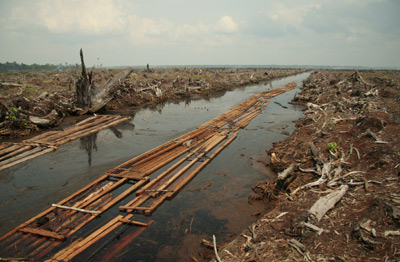By John-Miguel Dalbey
A recent interview published in E&E News suggests that practices which prevent deforestation may actually be good for business. Unilever, an international umbrella corporation headquartered in London, recently joined the 2013 Commitment to Development “Ideas in Action.” CEO Paul Polman, in the same E&E News interview from February 12, argues that such sustainable practices are in fact beneficial for both the environment and the economy, as destruction of global forests is irreversible, and will cause harvests to crash, causing catastrophic losses for both the economy and the environment. As the third largest consumer goods multinational and one of the oldest in the world, this commitment carries no small weight. Parent company behind such U.S. brands as Dove and Ben & Jerry’s, Unilever has already begun using entirely sustainable palm oil. As consumer of three percent of global palm oil, this is no small feat. This may well set a business trend throughout the consumer goods sector worldwide, and Unilever has already been credited with pressuring Wilmar International, controller of roughly 45 percent of the global palm oil market, into adopting a no-deforestation policy in areas with a “large conservation value.” Wilmar has similarly pledged to end deforestation worldwide.

Globally, the growth of palm oil plantations has devastating impacts for tropical forests, particularly in Southeast Asia and Indonesia. Roughly 85 percent of global palm oil is harvested in this area, as palm trees producing the oil grow well in tropical climates; however, this has caused massive rainforest deforestation. The U.S. Department of Agriculture’s Foreign Agricultural Service reports an eightfold increase in plantation size in Indonesia alone and states that roughly 10 percent of worldwide carbon emissions are due to deforestation. Palm oil itself is used for a massive range of purposes, from biodiesel and soap manufacture, to food filler and cooking oil.
American Forests supports several replanting efforts in Southeast Asia and Indonesia, such as the Orangutan Habitat Restoration and Protection in the Dolok Sibual Buali Nature Reserve and the Forests for the Future program.